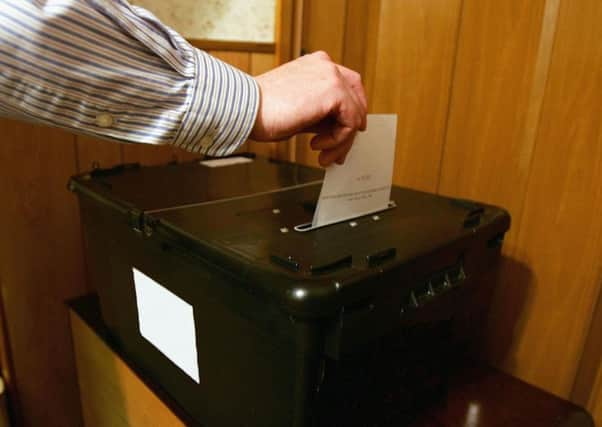Chris Marshall: Why prison inmates should be given the vote


Despite some recent indications that the UK Ministry of Justice is willing to make a few small concessions on the issue, Britain remains one of the few places in Europe where anyone serving a custodial sentence is automatically disenfranchised.
Things could be about to change north of the border, however, with moves now underway to look at the issue relating to Scottish elections.
Advertisement
Hide AdAdvertisement
Hide AdThe Holyrood parliament’s equalities committee has been hearing evidence on the subject and considering how devolved powers could be used to bring about a change in the law.
Stripping prisoners of their right to vote is based on the outmoded concept of “civic death”, where an offender forfeits their rights after being convicted of a crime.
It is an idea which has been consigned to the past by many of our European neighbours, with most countries allowing either all or some prisoners to exercise their democratic rights.
As the academic Cormac Behan has argued in his submission to the equalities committee, inconsistencies in the way the law is applied help undermine its credibility.
A prisoner serving a short sentence for a minor offence, for example, may be prevented from voting while an offender who has committed a more serious crime and has been released in time for election day will not be similarly barred.
There will also be cases where two offenders commit the same crime but are given custodial and non-custodial disposals depending on the circumstances of the case.
As Scotland moves to a more enlightened penal system based on evidence not populism, the ban on prisoners voting becomes more and more of an anachronism.
In criminal justice circles, there is now a broad consensus in favour of a presumption against sentences of less than 12 months.
Advertisement
Hide AdAdvertisement
Hide AdThe rationale is that short sentences don’t work and that they offer limited opportunities for rehabilitation when compared with community alternatives.
If we are to put rehabilitation at the centre of penal reform – and all the evidence is that we should – then prisoners should not be deprived of one of the touchstones of a fair society: the right to vote.
The blanket ban need not be removed entirely; there is an argument for continuing to bar those who commit the most serious of offences, particularly those unlikely to ever be released from their incarceration.
France, which has one of the most complex sets of rules governing prisoner voting, links disenfranchisement with the type of sentence delivered by the court, with the most serious crimes leading to a mandatory ban.
However, we should not delude ourselves that extending the vote will automatically lead to a surge in political engagement in our prisons.
In Ireland, where prisoners were uncontroversially given the vote in 2007, the turnout has been low.
But if Scotland wants to create a forward-thinking justice system based on fairness and rehabilitation as well as punishment, then respecting successive judgements by the European Court of Human Rights on the issue of prisoner voting is a good place to start.
